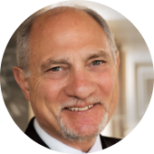
Geoffrey M. Wahl, PhD
Titles and Affiliations
Daniel and Martina Lewis Chair, Gene Expression Laboratory
Salk Institute for Biological Studies
Areas of Focus
- Metastasis
- Treatment
- Tumor Biology
Research area
Understanding the earliest drivers of tumor progression to identify indicators of future metastasis.
Impact
Metastasis, the movement of cells from the breast to other organs, is the biggest cause of death due to breast cancer. Understanding which women are most likely to progress from localized pre-cancerous lesions called ductal carcinoma in situ (DCIS) to invasive lesions and eventually metastasis is therefore an important goal and a primary focus of Dr. Wahl’s ongoing research. Identifying molecular mechanisms critical for tumor progression could enable development of tests that distinguish those patients most at risk of aggressive disease from the majority whose pre-cancerous lesions are unlikely to become dangerous. These insights could power the development of new treatments that could be used soon after DCIS is detected to prevent it from evolving into invasive, potentially metastatic disease.
Progress Thus Far
Signaling among tumor cells and between cells and their surrounding microenvironment plays an important role in these state changes. Dr. Wahl’s previous BCRF funding enabled him to develop ways to study how breast cells change state and to identify potential molecular targets useful for preventing tumor development. He and his team discovered that the muscle-like (basal) cells that form the outer layer of normal breast ducts rapidly change state once they are removed from their normal microenvironment. Triple-negative breast cancer resembles a cell state where the normal basal cell is undergoing rapid change. Dr. Wahl has also found links between obesity and menopause and the alteration of some types of breast cells that cause them to become more cancer stem cell-like, which can increase the likelihood of cancer development. Using these findings, Dr. Wahl was able to predict molecules that may be associated with the conversion of DCIS into invasive ductal carcinoma (IDC) that can progress to metastatic disease.
What’s next
During the coming year, Dr. Wahl and his team will analyze candidate genes they identified as important for breast state changes, determine the extent to which the same genes are expressed in DCIS and IDC, and whether inactivating these genes laboratory models of TNBC prevents invasion and metastasis.
Biography
Dr. Geoffrey M. Wahl is a Professor at the Salk Institute, an Adjunct Professor at the University of California, San Diego in the Department of Biology, and the past President of the American Association for Cancer Research (2006-2007). Dr. Wahl’s research focuses on the cells that originate and perpetuate cancers, the conditions that lead to cancer progression and metastasis, and why tumors become therapy resistant. Dr. Wahl’s early work involved uncovering the mechanisms that lead to the most common forms of genetic instability in human cancers, including those often seen in the highly aggressive, basal-like group of triple negative breast cancers. BCRF funds have been used to discern the nature of the cells that originate or perpetuate basal-like breast cancers. The Wahl laboratory found that mutations in the p53 gene, the most commonly mutated gene in basal-like breast cancer, increases the chances that a fully mature cell can “reprogram” into a more primitive “stem-like” cell. His lab also found that these primitive cells have strong similarities to the earliest stem cells identifiable during breast development, which they call fetal mammary stem cells. BCRF funding is enabling Dr. Wahl’s team to characterize the pathways essential for the growth and survival of these cells, as he expects these pathways will be important for perpetuation of basal-like breast cancers. The Wahl lab is also identifying molecules useful for tracking these cells in the body. Their hope is that these approaches will lead to development of new molecularly targeted therapeutics and diagnostic tools to provide alternatives, or additions, to chemotherapy, currently the only type of drug therapy for patients with triple negative breast cancer.
